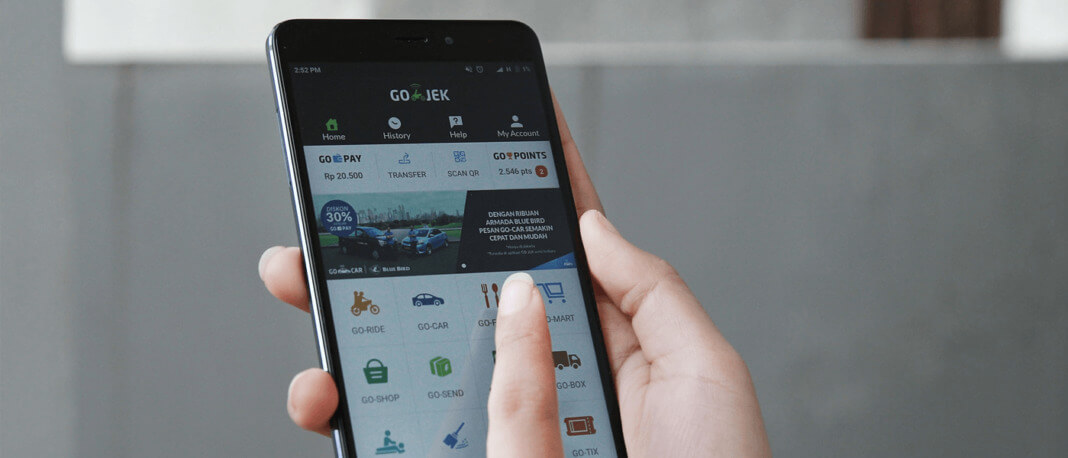With the plan to launch a new chat feature and e-commerce offering, Go-Mall, Indonesian ride-hailing giant, Go-Jek, is also quietly planning to launch Go-Travel, in partnership with an online travel agent, Tiket.com.
This collaboration marks another milestone in Go-Jek and Grab’s intense competition as the two dives into the travel space by launching their individual hotel booking sites through their apps.
Despite this partnership, Go-Jek users can only book hotel rooms, and not flights and rail tickets yet. Moreover, users still cannot pay using Go-Pay as a payment option, therefore it seems like Go-Jek will need more time to create a seamless experience around this new offering.
Go-Jek is not the only startup dabbling into the travel space. Grab also recently launched its hotel booking site for Singapore users, by teaming up with Agoda and Booking.com. Not so long ago, Shopee added a flight ticket feature in partnership with Traveloka, while two of Indonesia’s largest e-commerce platforms, Tokopedia and Bukalapak have already launched similar feature to serve the local travelers.
Adding travel booking features seems to become more and more important for on-demand platforms in Indonesia. And this “super app” race among the startups aim to cater more convenience and to the daily needs of users.
In a world where many of us rely on platforms like Google, Facebook, and YouTube on a daily basis, it can be hard for us to imagine life without them. However, there is also a rise in super app when startups try to put a bunch of services together into it. One of such examples is WeChat. The instant messaging app was launched by a Chinese tech giant Tencent in 2011 and now has more 950 million monthly active users for Q2 2017, becoming the app for everything in life. Launched initially as a messaging app, WeChat can now allow its users to book a doctor appointment, hail a taxi, play games all within the single app. And eventually, the app is also becoming the official electronic ID for Chinese people.

![6 eye-opening facts about phishing scams [Infographic]](https://www.techedt.com/wp-content/uploads/2019/05/6-eye-opening-facts-about-phishing-scams-1068x458.png)



